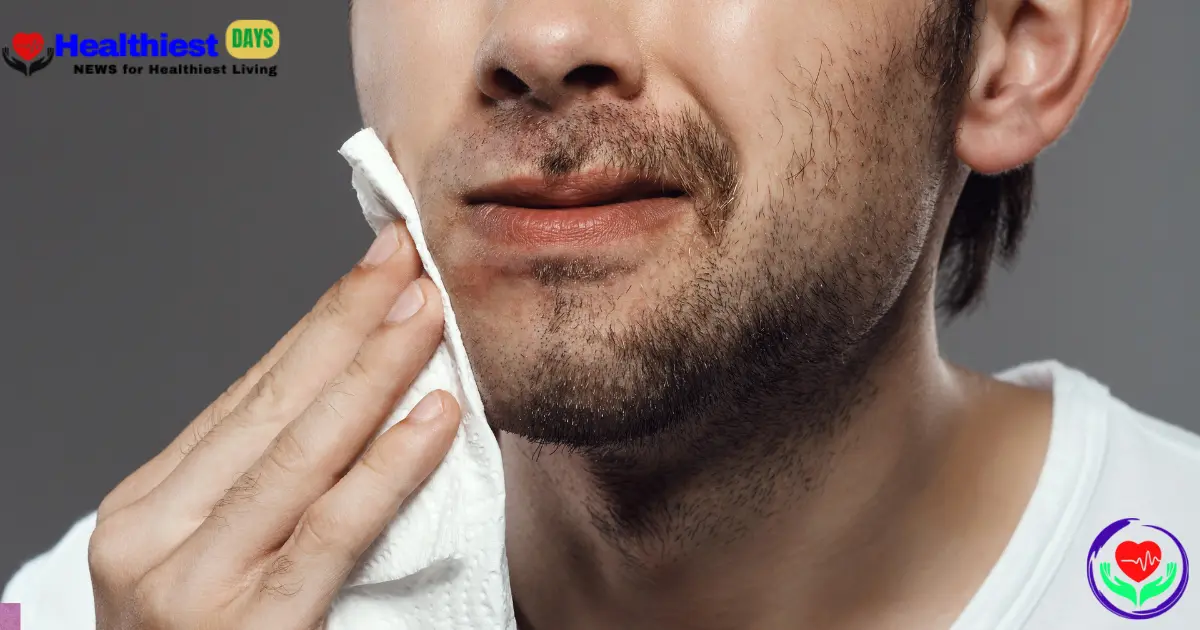Getting your wisdom teeth removed can feel like a major relief—until the swelling starts, and you do not know how long wisdom teeth swelling last. And suddenly, you feel that soreness in your face, tightening your jaw, and your reflection in the mirror image shows off what feels like a chipmunk version of you.
So naturally, here is the question that comes:
“How long does wisdom teeth swelling last?”
As you know, swelling is one of the most common side effects after the extraction of a wisdom tooth, and also you should know that it is usually temporary. Knowing what is normal as compared to concerning is a key to a smooth and gradual recovery. Here in this guide, we will uncover
- How long swelling typically lasts
- Tips to minimize swelling faster
- When you need to worry about swelling
- Aftercare instructions backed by Experts
- Some complications, like dry socket,

This blog guide is to break it all down so you can recover faster with peace of mind.
Why Does Swelling Occur After Removal of Wisdom Teeth?
Wisdom teeth removal is just like a minor surgery, and you know it is a natural response of the body to swell whenever surgery and tissue trauma are performed. During the removal of wisdom teeth, especially if the teeth are impacted, your gums and jaw are definitely surgically disturbed, which causes wisdom teeth swelling or inflammation.
What’s actually happening:
- Blood vessels in the surgical site expand after the procedure
- Fluid builds up and coagulates in surrounding tissue
- Your immune system signals white blood cells to heal the affected area
Worth noting is that wisdom teeth swelling is not a bad thing—it is one of the parts of the healing process. But it requires being monitored and managed well.
So, how long does wisdom teeth swelling last?
Typical Swelling Timeline
The approximate swelling timeline is described here in the below table:
| Day | What to Expect |
| Day 1–2 | Time to begin swelling, gradually increases |
| Day 3–4 | Most of the swelling is gone; minor puffiness may remain |
| Day 5–7 | Swelling begins to reduce with proper care |
| Day 7–10 | Most of swelling gone; minor puffiness may remain |
| Day 14+ | Almost No Swelling, Complete healing for most people |
According to the American Association of Oral and Maxillofacial Surgeons, swelling usually subsides within 7–10 days if postsurgical guidelines are followed correctly.

How to Reduce Swelling After Wisdom Teeth Removal
Follow these reliable and proven recovery strategies for faster relief:
Things to Do:
- Apply cold compresses, especially in the first 48 hours. 20 min on, 20 min off
- Rinse gently with warm salty water after 24 hours
- Stick to soft foods; for example, consume mashed potatoes, smoothies, yogurt
- Use ibuprofen (NSAIDs) to reduce inflammation and swelling
- Keep your head elevated while sleeping; use best pillow height
Things to Avoid:
- Using a straw (here is a risk of dry socket)
- Do not consume Crunchy or spicy foods
- Quit Smoking or vaping (it may cause major healing delay)
- Strenuous, hardcore activity for at least 72 hours
When Is Swelling Not Normal?
While some puffiness is expected due to fluid retention, immediately call your oral surgeon if you notice these:
- Swelling increases after Day 5
- Feel Fever or chills
- Pus or foul odor from the extraction area
- Pain that worsens or radiates to your ear or temple
- Sudden bleeding that does not stop
Be aware of these symptoms, as these could be signs of infection, dry socket, or improper healing.
Related Symptoms That Accompany Swelling
Inflammation is usually part of a group of symptoms that may include:
- Mild to moderate pain symptom
- Bruising on cheeks or jaw
- Sign of tightness while opening your mouth
- Tender lymph nodes
Most of these symptoms will improve gradually with proper rest, aftercare, and pain management.
What Affects How Long Your Swelling Lasts?
Key factors that impact swelling:
| Factors | Impact on Healing |
| Type of surgery | Impacted teeth = more trauma = more swelling |
| Smoking/vaping | Significantly delays healing |
| Age | Younger patients tend to heal faster |
| Overall health | Diabetes, autoimmune issues slow recovery |
| Aftercare compliance | Skipping rinses or eating hard foods can worsen swelling |
Expert Opinion
A study in 2020 in the Journal of Oral and Maxillofacial Surgery found that postoperative compliance, aftercare, is the number 1 factor that influences swelling and healing speed. Patients who had followed instructions like cold packs, salt water rinses, and soft food diets had reported faster recovery with fewer and minimal complications.
Real Patient Story
Ashley, 24, who had all four wisdom teeth removed (two impacted), had her oral surgeon use dissolvable stitches. She applied cold pack compresses regularly, avoided straws, and followed a strict soft-food diet and aftercare.
The results were so impressive; her swelling peaked on Day 3, started fading by Day 5, and was gone by Day 8. Eventually she returned to work on Day 6 with zero complications at all.
Recovery Tools That Help Wisdom Teeth Swelling
Here in this table below, the guide for recovery tools is shown:
| Tool | Purpose |
| Cold compress | Reduces swelling (first 48 hours) |
| Gauze pads | Controls bleeding |
| It is anti-inflammatory and provides pain relief | Prevents infection, soothes site |
| Ibuprofen (Advil) | It is Anti-inflammatory, pain relief |
| Soft foods | Prevents aggravating the surgical area |
| Recovery pillows | Keep head elevated at night |
| Wisdom tooth aftercare kits | Complete healing kits (syringe, gauze, rinse) |
Takeaway
Inflammation after wisdom teeth extraction is completely normal, especially in the first few days. With proper pre-care and attention to post-op instructions and aftercare, it typically peaks by Day 3–4 and starts fading by Day 7–10.
But keep in mind to not ignore the signs and symptoms of complications. When in doubt or observing any sign of complications, immediately contact your oral surgeon.
10 Frequently Asked Questions (FAQs)
1. How long does it take for swelling to start fading after wisdom teeth removal?
It should fade up typically in between 7–10 days, with the peak around Day 3–4.
2. What helps wisdom teeth inflammation go down fast?
There are a few techniques, like cold compresses, ibuprofen, soft foods, and sleeping upright, that help swelling go down.
3. Did the swelling get worse with impacted wisdom teeth?
Yes, it is. Teeth deeply impacted cause more trauma and inflammation.
4. Can you get swelling after just one wisdom tooth removal?
Yes, it is a natural phenomenon; even one extraction can cause swelling depending on the procedure. Don’t worry at all; just follow the aftercare instructions.
5. When should you worry about swelling?
You should take great care if swelling increases after Day 5 or is paired with fever, pus, or pain. Consult your oral surgeon.
6. Does a saltwater rinse help with swelling?
Yes, by using it after 24 hours, it will help prevent infection and soothen the area.
7. Should you use ice or heat for swelling?
You should use ice for the first 48 hours, then switch to a warm compress if needed.
Call to Action
Are you still dealing with swelling after wisdom tooth surgery?
Then do not go on guesses on your way through recovery; be practical because it may get worse if not properly cured.
Visit HealthiestDays for oral surgery aftercare guides approved by experts, real case studies, and trusted healing techniques from dental professionals.
We at Healthiestdays want you to heal faster, smile better, and live healthier.








